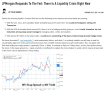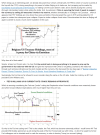Last Gasp Of The Landfill Economy
Last Gasp Of The Landfill Economy | ZeroHedge
ZeroHedge - On a long enough timeline, the survival rate for everyone drops to zero
JPMorgan Responds To The Fed: There Is A Liquidity Crisis Right Now
JPMorgan Responds To The Fed: There Is A Liquidity Crisis Right Now | ZeroHedge
ZeroHedge - On a long enough timeline, the survival rate for everyone drops to zerowww.zerohedge.com
100% it seems, as that is the news I am seeing also .. Liquidity Crisis ( not enough US Dollars in the system, which is to be expected as credit squeezes and we reduce debt )


 \
\

Last Gasp Of The Landfill Economy
Last Gasp Of The Landfill Economy | ZeroHedge
ZeroHedge - On a long enough timeline, the survival rate for everyone drops to zerowww.zerohedge.com
I have been saying this for years.Last Gasp Of The Landfill Economy
Last Gasp Of The Landfill Economy | ZeroHedge
ZeroHedge - On a long enough timeline, the survival rate for everyone drops to zerowww.zerohedge.com
Agreed.I have been saying this for years.
Modelo sales are down ..
I'm still driving my 2002 Ford Exploder with 185K miles. I've always done the work myself which is mostly replacing worn out parts. Yeah, those old parts end up in the landfill. Not too happy about my entry level Samsung HDTV that only lasted 7 years but I hear that's pretty much the lifespan if you use it a lot. Still using it but it's got issuea and by years end it'll be replaced unless tariffs drive up the price then I'll just continue to watch it with the left side backlight pretty gone.Test from article, again in case it get's pay walled
Last Gasp Of The Landfill Economy
Tyler Durden's Photo
by Tyler Durden
Saturday, Apr 12, 2025 - 07:30 AM
Authored by Charles Hugh Smith via OfTwoMinds blog,
It seems we're supposed to mourn the last gasp of The Landfill Economy. Perhaps we should celebrate its demise.
Globalization's great gift wasn't low prices--it was the collapse of durability, transforming the global economy into a Landfill Economy of shoddy products made of low-cost components guaranteed to fail, poor quality control, planned obsolescence and accelerated product cycles--all hyper-profitable, all to the detriment of consumers and the planet.
Globalization also accelerated another hyper-profitable gambit: . Since all the products are now made with the same low-quality components, they all fail regardless of brand or price. The $2,000 refrigerator lasts no longer than the $700 fridge. Since the manufacturers and retailers all know the products are destined for the landfill by either design or default, warranties are uniformly one-year--and it's semi-miraculous if the consumer can find anyone to act on replacing or repairing the failed product even with the warranty.
In The Landfill Economy, Consumer choice is pure illusion. I'd like to buy once, cry once, so where is the option with a 10-year all parts and labor warranty? There isn't one, because nothing is durable--by design or default.
As a result, The Landfill Economy is fundamentally extortionist. We know this product will fail, you know this product will fail, and so here's our offer: buy a 3-year extended warranty for a hefty sum, because we've engineered the product to fail in four years.
If the product is digital, then even if it still functions, we'll force you to replace it via a new product cycle: we no longer support the old operating system, and since your device is out of date (heh) it can't load the new OS, and since all the apps now only function with the new OS, your device is useless.
The low price is also illusory, as we now have to buy four, five or ten products instead of one durable product. Appliances that once lasted 40 years now fail in 6 or 7 years if not sooner, so over the course of 40 years we have to buy five, six or seven appliances instead of one.
Note that these durable products weren't super-expensive commercial appliances; they were ordinary consumer appliances produced domestically in vast quantities.
Digitization is a key driver of The Landfill Economy, as cheap electronics all fail, and the product / vehicle / tool becomes a brick. Since inventory is an expense, it's been eliminated, so parts for older products are soon out of stock and unavailable.
In a few years, the firmware is no longer supported, and in a few decades, nobody will even know what coding was embedded in the chipset, but it won't matter anyway, because the chipsets are long gone.
Readers tell me vehicles are now wondrously reliable. Um, yeah, until they need to be repaired. Then the cost is higher than what I've paid for entire used cars.
A friend was showing us his 1957 Chevrolet Bel-Air. Unlike the stainless steal and low-quality chrome of today, the original parts are still untarnished. Since the entire vehicle is analog, parts can be scrounged or fabricated or swapped out with a similar set-up.
Does anyone seriously believe that a chipset-software-dependent vehicle today will still be running 68 years from now? Analog parts can be cast or welded; customized chipsets and firmware coding cannot. The original components will all be history.
Our friend recounted a very typical story about repairing his recent-model pickup truck. Since the engine was no longer responding to the accelerator, he borrowed a diagnostic computer (horribly expensive to maintain due to the extortionist monthly fee to keep the software upgraded) and came up with zip, zero, nada.
After swapping out the fuel pump at great expense and finding the problem persisted, he went online to YouTube University and found one video that explained the relay box from the accelerator to the engine didn't show up in the diagnostic codes, so the problem could not be identified.
The relay box cost $400, and likely consisted of components worth no more than a few dollars each. So after $1,000 in parts and his own labor, the problem was finally fixed. If this qualifies as "super-reliable and maintenance-free," then the diagnosis is obvious: mass delusion.
So now the status quo is desperate to maintain the global assembly lines feeding the hyper-profitable Landfill Economy. This may well be the last gasp of The Landfill Economy, as the supply chains of shoddy products designed to fail will break and consumers may well awaken to the high cost over time of an economy based on planned obsolescence, accelerated product cycles and extortionist illusions of choice.
Last week I bought an expensive portable solar panel manufactured in China from a local distributor. The U.S. brand distributing the product has a good reputation for quality. Of course the warranty is for one year.
The panel failed in less than a week: I smelled the unmistakable odor of an electrical short (insulation melting) and noticed the plastic rectangle that the output cord extended from was dimpled by high heat. The plastic part had no visible way to open it, and no visible way to replace it. So the entire panel is unrepairable.
(The local distributor had one in stock, so I was able to get a replacement. Here's hoping it has a non-defective set of components.)
It's doubtful anyone has the parts in stock, and it's also doubtful that it could be repaired even if one pried open the plastic casing to examine the melted bits. The parts are in one place--the factory that assembled the panel.
So this panel, manufactured at great expense of costly materials, will end up in the landfill after five days of service. And no, it won't be recycled, as there's no system to do so, and it doesn't make financial sense to even try.
Wow, isn't The Landfill Economy fantastic? Look how profitable it is, as consumers must constantly replace or repair at great expense everything that comes off the wonderful global supply chains. And since we worship "growth" and profits, The Landfill Economy is the ideal arrangement--for those making and selling all the stuff.
For the consumers--not so much, but who cares, since they have no choice but to keep buying shoddy products designed to fail.
Add the defective solar panel to the long list of other failed products in our household: the iPhone screen that failed, the washer that failed, the dryer that failed (which I was able to fix by replacing the motherboard, which only cost half the price of a new dryer with my "free" labor), the failed fridge, defective toaster from Walmart, shoes from Costco that fell apart in a few months, and the failed AC system in our 2016 Honda Civic. (Mention this to any mechanic and they quickly nod, "oh yeah, those all fail.")
All of this failure generates "growth" and profits, the two Grails every economist worships. Here's another load of "growth" going straight into the landfill.
It seems we're supposed to mourn the last gasp of The Landfill Economy. Perhaps we should celebrate its demise.
* * *
Not possible.I still have more than I need
Remember, a few years ago the Germans had their gold removed from the US.Something's clearly going on with Gold... I wish I know and I wish I'd bought a LOT more. Feels like chasing it now...
American Gold is German Gold
American Gold is German Gold | ZeroHedge
ZeroHedge - On a long enough timeline, the survival rate for everyone drops to zerowww.zerohedge.com

Remember, a few years ago the Germans had their gold removed from the US.

Germany Completes Repatriation of Gold Reserves Ahead of Schedule - Manhattan Gold & Silver
The German government expects to complete its plan to repatriate 674 tons 3 years ahead of schedule. Read on to learn about Germany’s gold reserves.www.mgsrefining.com
Sorry, should of read.Read the article I posted. It outlines that,. It took the US 4 years to give it to them... the 1/2 of their gold holdings they asked for.
The article now expects them to ask for the other 1/2, and we're furiously importing Gold.
What does that tell you? Somethings not right
Read the article I posted. It outlines that,. It took the US 4 years to give it to them... the 1/2 of their gold holdings they asked for.
The article now expects them to ask for the other 1/2, and we're furiously importing Gold.
What does that tell you? Somethings not right
